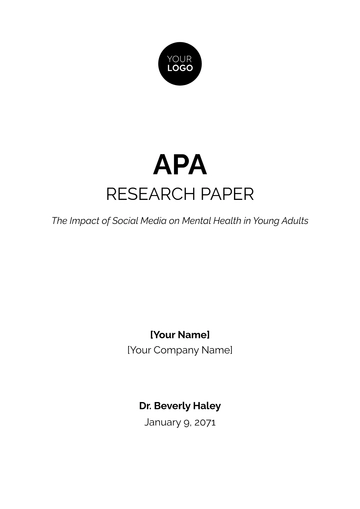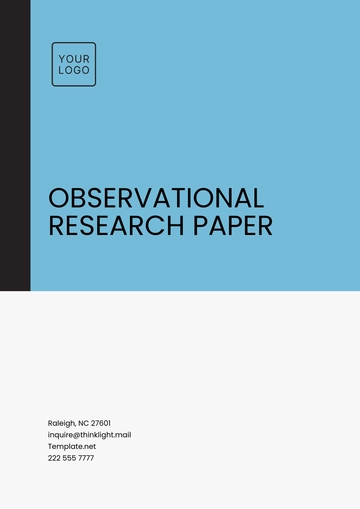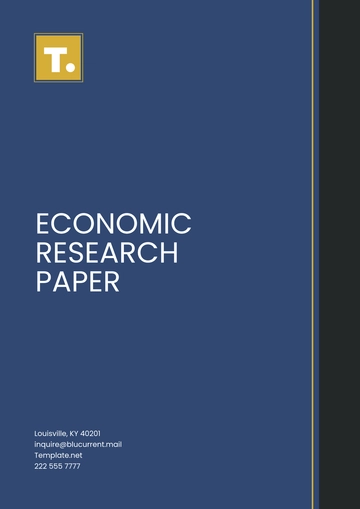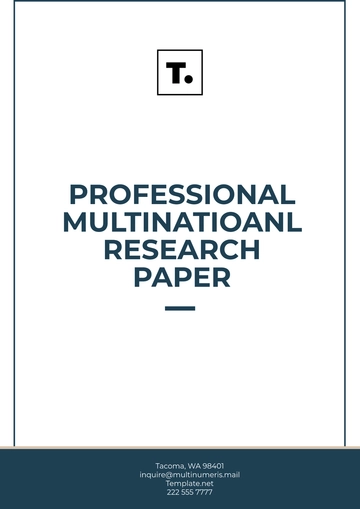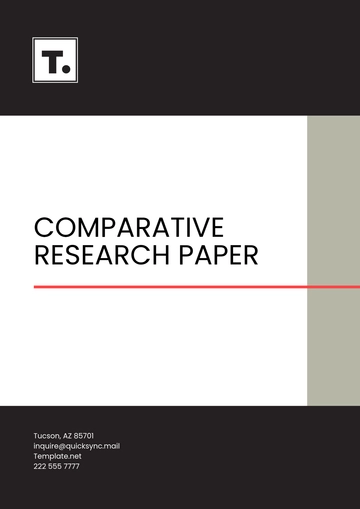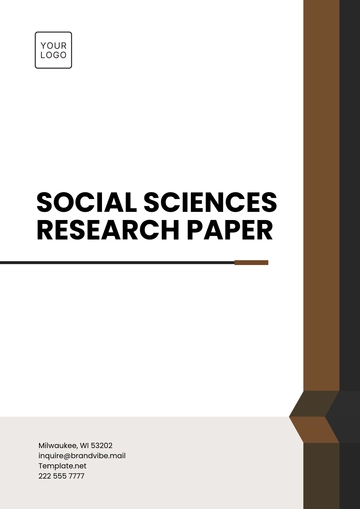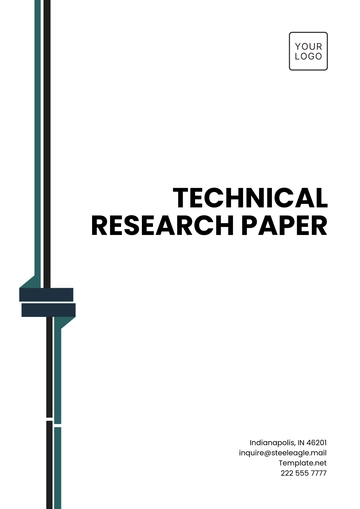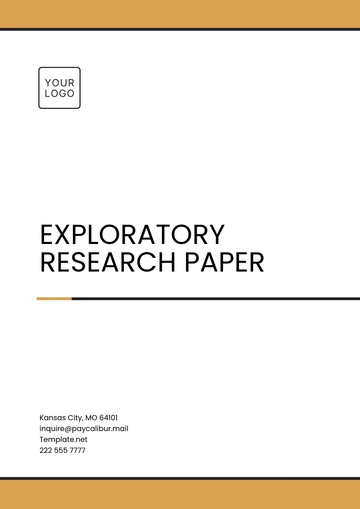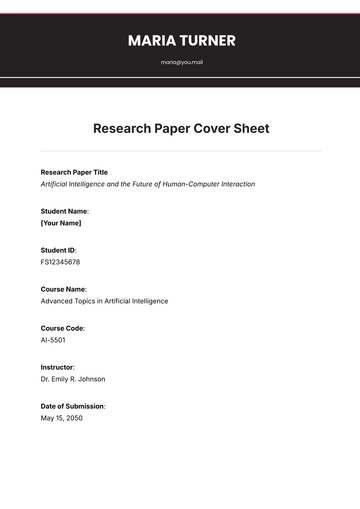Free Climate Change Research Paper
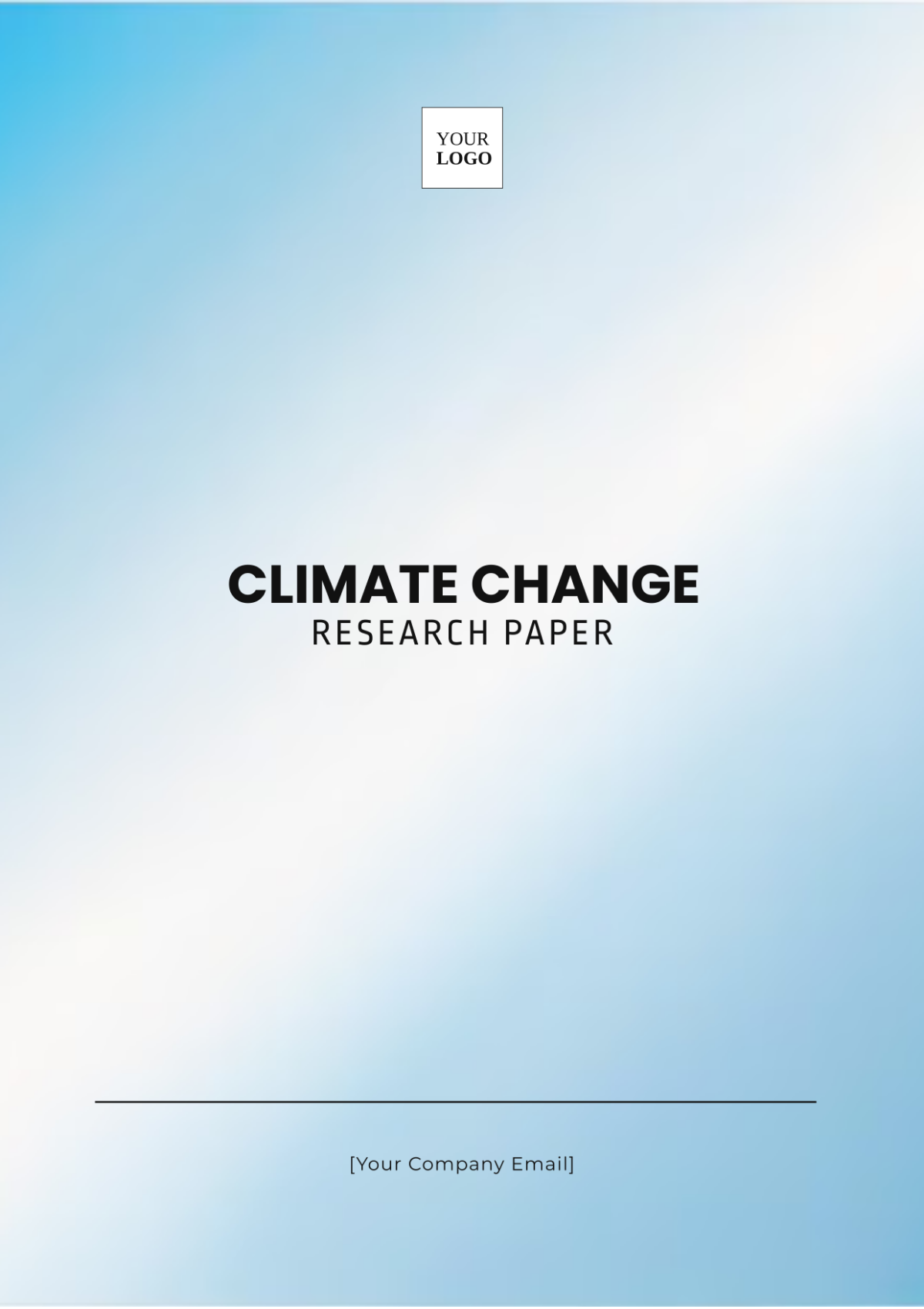
Prepared By: [Your Name]
Organization Name: [Your Company Name]
1. Introduction
Climate change is a pressing global issue with significant environmental, social, and economic impacts. This paper examines the causes, including greenhouse gas emissions and deforestation, and the effects, such as rising temperatures and extreme weather events. It also explores potential solutions like renewable energy and policy measures. Through data analysis and literature review, this paper aims to offer a clear understanding of climate change and actionable recommendations.
2. Causes and Effects of Climate Change
2.1 Causes
Greenhouse Gas Emissions: Burning fossil fuels and industrial activities release CO2, CH4, and N2O, which trap heat in the atmosphere.
Deforestation: The loss of forests reduces CO2 absorption and increases atmospheric CO2 levels.
Industrial Activities: Manufacturing and mining contribute to greenhouse gas emissions and environmental degradation.
Agriculture: Livestock farming and fertilizer use release potent greenhouse gases like methane and nitrous oxide.
2.2 Effects
Temperature Rise: Increased global temperatures lead to more frequent heatwaves.
Sea Level Rise: Melting ice caps and thermal expansion of seawater threaten coastal areas.
Extreme Weather Events: More intense hurricanes, droughts, and floods cause widespread damage.
Ecosystem Disruption: Altered climate patterns affect biodiversity and ecosystems.
3. Potential Solutions
3.1 Mitigation Strategies
Renewable Energy: Transitioning to solar, wind, and hydropower reduces greenhouse gas emissions.
Energy Efficiency: Enhancing energy efficiency in buildings and industries cuts overall energy use.
Afforestation and Reforestation: Planting trees and restoring forests enhance CO2 absorption.
Carbon Capture and Storage (CCS): Capturing and storing CO2 emissions helps reduce atmospheric levels.
3.2 Adaptation Strategies
Infrastructure Resilience: Building resilient infrastructure to withstand extreme weather.
Water Management: Developing systems to address water scarcity and flooding.
Agricultural Adaptation: Adopting drought-resistant crops and crop diversification.
Health Preparedness: Enhancing healthcare systems to address climate-related health risks.
4. Data Analysis
The data analysis conducted for this research paper involves examining climate models, emissions data, and impact assessments. The following table summarizes key findings from recent studies:
Study | Key Findings |
|---|---|
IPCC Report (2050) | Projected temperature rise of 1.5°C by 2060 with significant impacts on ecosystems and human health. |
NOAA Report (2055) | Increase in the frequency and intensity of extreme weather events globally. |
NASA Report (2057) | Accelerating ice loss from Greenland and Antarctica contributes to rising sea levels. |
5. Literature Review
A review of existing literature reveals a consensus on the anthropogenic nature of climate change. Studies highlight the urgent need for action to curb emissions and develop strategies for adaptation. Key literature includes:
IPCC Special Report on Global Warming of 1.5°C (2050): Analyzes impacts and pathways to limit temperature rise.
National Climate Assessment (2055): Provides information on climate impacts in the U.S.
The Lancet Commission on Health and Climate Change (2057): Examines health implications and policy recommendations.
6. Recommendations
Based on the research findings, the following recommendations are proposed:
Global Cooperation: Strengthen international efforts to implement the Paris Agreement and achieve net-zero emissions.
Investment in Research: Increase funding for climate research and technological innovation.
Public Awareness: Enhance education and awareness on climate change to promote sustainable practices.
Policy Implementation: Support policies that encourage renewable energy and energy efficiency.
7. Conclusion
Addressing climate change requires urgent, collective action. By understanding its causes and effects and implementing effective mitigation and adaptation strategies, society can manage the risks and adapt to changes. Collaborative efforts are essential to ensure a sustainable future.
8. References
Intergovernmental Panel on Climate Change. (2050). Global Warming of 1.5°C. Geneva: IPCC.
National Oceanic and Atmospheric Administration. (2055). State of the Climate Report. Silver Spring, MD: NOAA.
NASA. (2057). Climate Change: Vital Signs of the Planet. Retrieved from https://climate.nasa.gov/
The Lancet. (2057). The Lancet Commission on Health and Climate Change. Retrieved from https://www.thelancet.com/commissions/climate-change-2057
- 100% Customizable, free editor
- Access 1 Million+ Templates, photo’s & graphics
- Download or share as a template
- Click and replace photos, graphics, text, backgrounds
- Resize, crop, AI write & more
- Access advanced editor
Discover the Climate Change Research Paper Template from Template.net, designed to streamline your research writing. This fully editable and customizable template allows you to easily organize your findings, structure your paper, and present your data effectively. Tailor it to fit your specific research needs, ensuring a professional and polished final document. Ideal for academics, students, and professionals focused on climate change.



